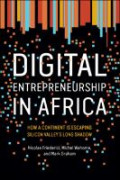
Digital Entrepreneurship in Africa
The hope and hype about African digital entrepreneurship, contrasted with the reality on the ground in local ecosystems. In recent years, Africa has seen a digital entrepreneurship boom, with hundr…
- Edisi
- -
- ISBN/ISSN
- 9780262538183
- Deskripsi Fisik
- ebook
- Judul Seri
- -
- No. Panggil
- -

Digital Transformations in Nordic Higher Education
This open access book expands the scholarly and policy debates surrounding digital transformation in higher education. The authors adopt a pluralistic conceptual framework which uncovers three anal…
- Edisi
- -
- ISBN/ISSN
- 9783031277580
- Deskripsi Fisik
- ebook
- Judul Seri
- -
- No. Panggil
- -
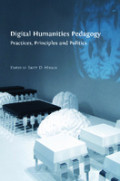
Digital Humanities Pedagogy
Academic institutions are starting to recognize the growing public interest in digital humanities research, and there is an increasing demand from students for formal training in its methods. Despi…
- Edisi
- -
- ISBN/ISSN
- 9781909254251
- Deskripsi Fisik
- ebook
- Judul Seri
- Digital Humanities Series,
- No. Panggil
- -
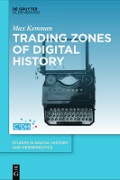
Trading Zones of Digital History
Will historians become programmers? How do historians collaborate with experts from computational domains? At the centre of the book is the question how historians are affected by such ongoing inte…
- Edisi
- -
- ISBN/ISSN
- 9783110682106
- Deskripsi Fisik
- ebook
- Judul Seri
- Studies in Digital History and Hermeneutics, 1
- No. Panggil
- -
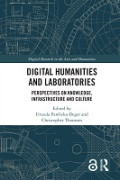
Chapter The Promise of Laboratories
This book is about digital humanities laboratories, places where the humanities take up new digital and computational technologies for teaching and research, which often grow out of—or turn into�…
- Edisi
- -
- ISBN/ISSN
- 9781032027630
- Deskripsi Fisik
- ebook
- Judul Seri
- -
- No. Panggil
- -

Interdisciplining Digital Humanities: Boundary Work in an Emerging Field
The first book to test the claim that the emerging field of Digital Humanities is interdisciplinary and also examines the boundary work of establishing and sustaining a new field of study
- Edisi
- -
- ISBN/ISSN
- 9780472072545
- Deskripsi Fisik
- ebook
- Judul Seri
- Digital Humanities,
- No. Panggil
- -

Inhabited Machines
Around 1800, one of the most influential architectural concepts of the last 250 years emerged—that of built spaces as technical devices. Climate, morality, and comfort are the three main themes o…
- Edisi
- -
- ISBN/ISSN
- 9783035623772
- Deskripsi Fisik
- ebook
- Judul Seri
- -
- No. Panggil
- -

Visions of Electric Media
*Visions of Electric Media* is an historical examination into the early history of television, as it was understood during the Victorian and Machine ages. How did the television that we use today d…
- Edisi
- -
- ISBN/ISSN
- 9789048537877
- Deskripsi Fisik
- ebook
- Judul Seri
- Televisual Culture,
- No. Panggil
- -

How Computers Entered the Classroom, 1960–2000
In the history of education, the question of how computers were introduced into European classrooms has so far been largely neglected. This edited volume strives to address this gap. The contributi…
- Edisi
- -
- ISBN/ISSN
- 9783110780147
- Deskripsi Fisik
- ebook
- Judul Seri
- -
- No. Panggil
- -

Incorporating the Digital Commons
The concept of ‘the commons’ has been used as a framework to understand resources shared by a community rather than a private entity, and it has also inspired social movements working against t…
- Edisi
- -
- ISBN/ISSN
- 9781912656424
- Deskripsi Fisik
- ebook
- Judul Seri
- -
- No. Panggil
- -
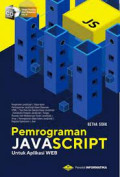

 Karya Umum
Karya Umum  Filsafat
Filsafat  Agama
Agama  Ilmu-ilmu Sosial
Ilmu-ilmu Sosial  Bahasa
Bahasa  Ilmu-ilmu Murni
Ilmu-ilmu Murni  Ilmu-ilmu Terapan
Ilmu-ilmu Terapan  Kesenian, Hiburan, dan Olahraga
Kesenian, Hiburan, dan Olahraga  Kesusastraan
Kesusastraan  Geografi dan Sejarah
Geografi dan Sejarah